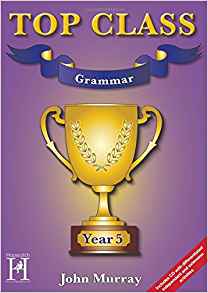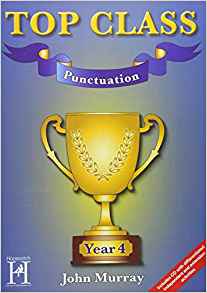-
Elements of Chemistry; Volume 1
John Murray
Paperback (Palala Press, )None
-
Demotivational Memes Vol. VI
John Clark
eBookNone
-
Demotivational Memes: Vol. II
John Clark
eBookNone
-
The Wide Awake Fourth Reader
Clara Murray
Hardcover (Forgotten Books, Jan. 21, 2018)Excerpt from The Wide Awake Fourth ReaderThe fourth reader of a series does not deal so much With mechanical details, which Should have been mastered in the lower grades, as with the more practical and aesthetic Sides of reading. The pupils are now beginning to learn by reading instead of learn ing to read; and the selections should be of two distinct types, those which contain definite statements of fact to be read and digested, and those which, by their entertaining style and liter ary merit, will lead to an appreciation and love of the best books. In other words, the pupils must learn to read intelligently, so that they may be prepared for the more serious study of history and geography, and they must also acquire a taste for real liter ature and become acquainted with good authors.All of the prose selections and many of the poems in this book are copyrighted material. They have not been used in other series of readers, and thus the tiresome repetition of reading a story over and over again will be avoided.In so far as is consistent with the necessity for. Grading the work to the understanding and ability of the pupils, the se lections are chosen with reference to their literary value and children will read with delight stories from the pen of such well known writers as Louisa M. Alcott, Laura E. Richards, Edward Lear, Helen Hunt Jackson and Lucretia P. Hale.About the PublisherForgotten Books publishes hundreds of thousands of rare and classic books. Find more at www.forgottenbooks.comThis book is a reproduction of an important historical work. Forgotten Books uses state-of-the-art technology to digitally reconstruct the work, preserving the original format whilst repairing imperfections present in the aged copy. In rare cases, an imperfection in the original, such as a blemish or missing page, may be replicated in our edition. We do, however, repair the vast majority of imperfections successfully; any imperfections that remain are intentionally left to preserve the state of such historical works.
-
Playing with Shakespeare
John Clark
Paperback (Phoenix Education Australia, )None
-
The truth of revelation, demonstrated by an appeal to existing monuments, sculptures, gems, coins, and medals
John Murray
Paperback (University of California Libraries, Jan. 1, 1831)This book was digitized and reprinted from the collections of the University of California Libraries. It was produced from digital images created through the libraries’ mass digitization efforts. The digital images were cleaned and prepared for printing through automated processes. Despite the cleaning process, occasional flaws may still be present that were part of the original work itself, or introduced during digitization. This book and hundreds of thousands of others can be found online in the HathiTrust Digital Library at www.hathitrust.org.
-
The Wide Awake Third Reader
Clara Murray
Paperback (Forgotten Books, Sept. 16, 2017)Excerpt from The Wide Awake Third ReaderIN this, the third reader of the series, great care has been taken, not only in selecting material suited to the needs and ability of the pupil, but also to arrange the selections so that he may develop the habit of acquiring interesting facts as he reads.About the PublisherForgotten Books publishes hundreds of thousands of rare and classic books. Find more at www.forgottenbooks.comThis book is a reproduction of an important historical work. Forgotten Books uses state-of-the-art technology to digitally reconstruct the work, preserving the original format whilst repairing imperfections present in the aged copy. In rare cases, an imperfection in the original, such as a blemish or missing page, may be replicated in our edition. We do, however, repair the vast majority of imperfections successfully; any imperfections that remain are intentionally left to preserve the state of such historical works.
-
Top Class - Vocabulary Year 5
John Murray
CD-ROM (Hopscotch, )None
-
The Wide Awake Second Reader
Clara Murray
Paperback (Forgotten Books, Feb. 1, 2019)Excerpt from The Wide Awake Second ReaderThe quality of the reading matter must be of the very best in order that the pupils may unconsciously cultivate a taste for good literature. We are fortunate in being able to offer in this book selections from such authors as Susan Coolidge, Laura E. Richards, and Mary E. Wilkins, authors whose stories for children are classics, and who know and interpret delightfully the interests of the little people.About the PublisherForgotten Books publishes hundreds of thousands of rare and classic books. Find more at www.forgottenbooks.comThis book is a reproduction of an important historical work. Forgotten Books uses state-of-the-art technology to digitally reconstruct the work, preserving the original format whilst repairing imperfections present in the aged copy. In rare cases, an imperfection in the original, such as a blemish or missing page, may be replicated in our edition. We do, however, repair the vast majority of imperfections successfully; any imperfections that remain are intentionally left to preserve the state of such historical works.
-
Top Class - Grammar Year 5
John Murray
Paperback (Hopscotch, Sept. 1, 2016)None
-
Top Class - Punctuation Year 4
John Murray
Paperback (Hopscotch, Dec. 31, 2014)None
-
The Wide Awake Fourth Reader
Clara Murray
Paperback (Forgotten Books, Jan. 21, 2018)Excerpt from The Wide Awake Fourth ReaderThe fourth reader of a series does not deal so much With mechanical details, which Should have been mastered in the lower grades, as with the more practical and aesthetic Sides of reading. The pupils are now beginning to learn by reading instead of learn ing to read; and the selections should be of two distinct types, those which contain definite statements of fact to be read and digested, and those which, by their entertaining style and liter ary merit, will lead to an appreciation and love of the best books. In other words, the pupils must learn to read intelligently, so that they may be prepared for the more serious study of history and geography, and they must also acquire a taste for real liter ature and become acquainted with good authors.All of the prose selections and many of the poems in this book are copyrighted material. They have not been used in other series of readers, and thus the tiresome repetition of reading a story over and over again will be avoided.In so far as is consistent with the necessity for. Grading the work to the understanding and ability of the pupils, the se lections are chosen with reference to their literary value and children will read with delight stories from the pen of such well known writers as Louisa M. Alcott, Laura E. Richards, Edward Lear, Helen Hunt Jackson and Lucretia P. Hale.About the PublisherForgotten Books publishes hundreds of thousands of rare and classic books. Find more at www.forgottenbooks.comThis book is a reproduction of an important historical work. Forgotten Books uses state-of-the-art technology to digitally reconstruct the work, preserving the original format whilst repairing imperfections present in the aged copy. In rare cases, an imperfection in the original, such as a blemish or missing page, may be replicated in our edition. We do, however, repair the vast majority of imperfections successfully; any imperfections that remain are intentionally left to preserve the state of such historical works.